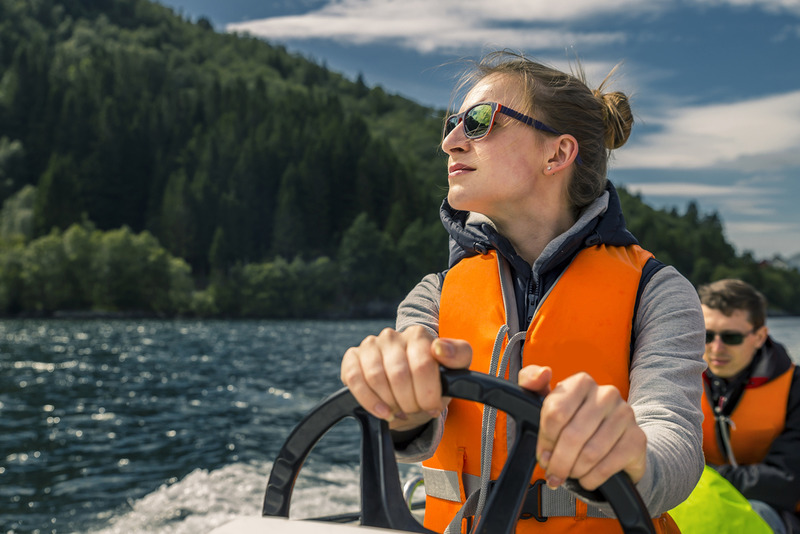A USCG documentation lookup is just one of the services that we aim to offer our customers. If you go to our site, you can find a comprehensive list of vessel documentation forms. That means that all of the forms you’ll need to keep your vessel legal on the water can be found at our site. Of course, there’s a lot more to boating legally than just having the proper documentation sent in. We’d like to take the opportunity in this blog to talk about life jackets: what kinds you should have and why they’re necessary. We feel it’s one more way that we can help our customers to boat safer.
USCG Documentation Lookup and More
Boating is quite a bit of fun, but it comes with certain responsibilities. There’s nothing quite like being out on the water, whether it’s for fun with friends and family, or whether it’s for work as you use the seas to make a living. No matter your reasons for being out on the water, you have to practice safe boating. Not only will this keep you safe, it’ll also help people on other vessels stay safe as well, to say nothing of the people on your own vessel. So, while it’s critically important to have all of your vessel documentation all filled out and sent in, it’s important to have the right life jackets on your vessel, too.
Necessity of Life Jackets
If you’ve ever stepped foot on a boat in your life, you know there’s that one person that always asks: “do we really need to have life jackets?” The answer is of course: yes, you do. You need to have them for the law, but you also need to have them because frankly, they can save your life. The water is unpredictable. Talk to anyone who’s been on the water for most of their life, and they’ll be the first to tell you how even calm bodies of water can change in the literal blink of an eye. So, when that happens, you need to have life jackets on board as they can help you with whatever comes.

Stay Afloat
That’s one of the main functions of a life jacket: to make sure that you stay afloat should you suddenly end up in the water. A life jacket can be a literal life saver should you capsize in rough, unkind waters. They can keep you afloat even if you’ve been knocked unconscious. So you don’t drown when you aren’t conscious, a life jacket can keep your head above water in a literal, clear sense. No matter how you end up in the water, whether through a collision or accident, tidal wave, mechanical failure or other incident, a life jacket can keep your mouth and nose from staying too long into the water.
Keep Them Nearby
You may not have to wear life jackets all the time while you’re on a vessel, but you should have them where they can be reached. Having your life jackets in a locked box… somewhere underneath something on the boat will do you no good in an emergency. Should you have to get to those life jackets in a hurry with lives on the line; those essentially hidden and forgotten life jackets will do you just as much good as if you had left them on land. To make sure that your life jackets are there when you need them, make sure that they can be accessed easily. That means not putting them in a place where stuff is stored on top of them, etc.
A life jacket, like other parts of your boat, should be updated. You wouldn’t go out with a hull that had visible holes in it, or an engine that had worn down so much it could barely do the job it’s supposed to. The same goes for life jackets. If your life jackets are worn, torn, old, faded, water logged or can’t float anymore, then they’re no good to you. Then, you want to get new life jackets. That’s not to say that you should get new life jackets every time you get on your boat or every year or something, but you should check your life jackets often to make sure they’re ready should they be pressed into service.
Life jackets are just one way to make sure that your boating experience is a better, safer one. That being said, they are a critically important aspect. If our blog here at our vessel documentation site got one person to check their life jacket when they otherwise might not have, it was worth writing this. If you have any further questions about vessel documentation, certificates of documentation or other USCG documentation issues, give us a call at (800) 535-8570 or head to our site.

